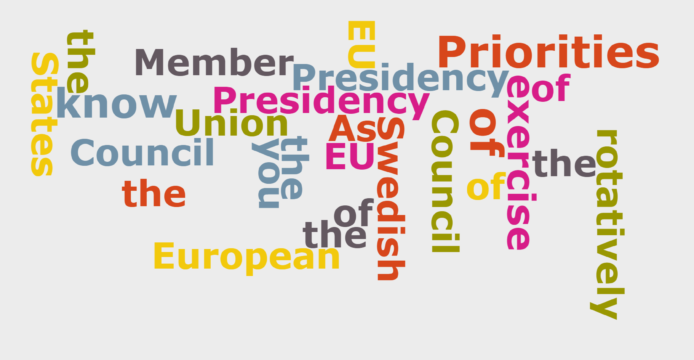As you know EU Member States exercise the Presidency of the Council of the European Union rotatively, every six months. In this context the Kingdom of Sweden will occupy the Council’s Chair from the 1st of January 2023 to the 30th of June 2023, succeeding to the Czech Republic. The government of Sweden has already made known its priorities and projects for the months ahead.
Amongst other priorities, Competitiveness figures very high in Stockholm’s plans: the Presidency underlines in fact that “only through competitive businesses can we create sustainable growth, accelerate the green and digital transitions, increase economic resilience and strengthen the EU’s geopolitical importance. Measures at EU level need to be based on fundamental values such as openness, freedom of movement, effective competition, uniform and growth-promoting regulatory frameworks and innovation.” In particular, one of the strategic objectives of Sweden is strengthening Europe’s research and technological leadership through a European partnership focusing on semiconductors and related technologies.
Digitalisation is another big priority: Sweden believes that “developing new technologies, especially in the field of artificial intelligence, is a tool for achieving a more innovative, competitive, inclusive, secure and sustainable Europe. This includes introducing uniform rules on artificial intelligence within the internal market.” Thus the Presidency will initiate negotiations with the European Parliament and advance them as far as possible.
At the same time Stockholm feels that “efforts to put in place an interconnected European electronic ID and digital wallet system have the potential to lead to groundbreaking internal market reform.” Its ambition is to initiate negotiations with the European Parliament and to advance them as far as possible.
Data is a strategic resource and the Presidency intends to contribute to the implementation of the European Data Strategy. At the same time, the EU must not cut itself off from the rest of the world. The Data Act is an important part of this work. The Presidency intends to take over work on the Act in the Council, initiate negotiations with the European Parliament and advance these negotiations as far as possible.
Digital infrastructure is a prerequisite for taking advantage of the opportunities afforded by digitalisation. The Presidency will begin the Council’s work on the Connectivity Infrastructure Act, which is designed to reduce the costs of expanding the high-speed electronic communications networks.
If you are interested in these priorities please contact EurEta’s Secretariat for further information.

